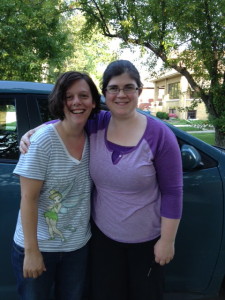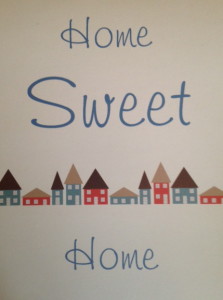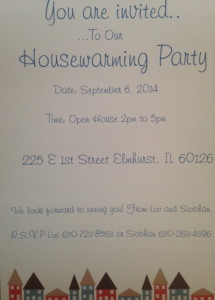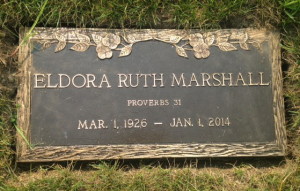Why are you so downcast, O my soul?
Why so disturbed within me?
Put your hope in God, for I will yet praise him,
my Savior and my God.
When the news broke that Robin Williams had died, I was sad and surprised like everybody else. It wasn’t long before the it was reported that he had killed himself and over the next days more facts have trickled out. He had battled depression and addiction; he had bipolar disorder; and had been recently diagnosed with early stage Parkinsons.
A year or so ago, Rick and Karen Warren lost their son to suicide. He had battled mental illness for 27 years. At a recent conference addressing Mental Health and the Church, Warren said, “I am not an authority on mental illness, but I am an authority on living with mental illness.” I’m not sure I would claim to be an authority, but I sure know a lot about living with mental illness.
We have lived with mental illness for at least 13 years. In 2001, our son John was diagnosed with Bipolar II Disorder. He’d previously been treated for ADD and depression. In 1999, he went through an outpatient Hazelden program, followed by 64 days in the desert at Redcliff Ascent, a program for troubled teens. In 2008, he spent three months at Spring Lake Ranch, a farm-based treatment facility in Vermont. He has had two brief hospitalizations and a two-year stint with MICAP of DuPage County.
At 32, he still lives at home and still rides up and down the roller coaster of bipolar moods. Winters are difficult due to depression brought on by the short days and challenging cold. Summers are not much better because manic cycling upsets his days and nights. He takes an array of prescription medicine but also self-medicates regularly. He has many interests and abilities, but lacks the ability to focus on any one thing long enough to make it is calling. He is currently volunteering with two inner-city hockey programs as an assistant coach. He enjoys woodwork and carving. He dreams of writing a graphic novel and creating a story-game. He knows a lot about sustainable gardening (but alas, no garden to show for it.) He would love to backpack in the mountains, travel, dance, have a girlfriend. He prays often for friends and for God to help him and sometimes attends church with us. He is crabby, angry, tearful, and sometimes “pressured.” He is also kind, generous, and great with kids.
We’ve attended classes, read books, counseled, and talked with many others. Everyone seems to have a story—some that “worked” and others that have dragged on in similar patterns, up and down, backwards and forwards. We’ve been called “enablers” and we’ve tried “tough love.” The one thing we haven’t done, is kick him out of our house—to join thousands of other mentally ill, homeless folks on the streets of our country and in our prisons.
We’ve considered the whole range of treatment options, and the underlying paradigms of diagnosis and understanding. Is mental illness a biochemical disturbance, similar to diabetes, requiring the right combination of drugs to improve neurotransmission in the brain? Is it primarily behavioral, a problem with addictions, best helped by 12-step programs and “recovery?” Or, is it a spiritual problem, beset by strongholds and demons bent on destroying God’s work in the world? Lastly, is it sociological, the result of our crazy world and lifestyles? My guess that the answer is: E) All of the above.
But what I really want to write about is hope in the context of mental illness. I once heard suicide defined as “a permanent solution to a temporary problem.” Recently, someone commented, “When hope is lost, despair enslaves the soul.” I just want to say this: Living with mental illness is hard. It is hard for the families of the mentally ill and it is even harder for the person living with it. If it takes a village to raise a child, it takes something even more to love and support a person with mental illness.
And in 2014, in America, that village does not exist, at least for us. We tend to avoid hospitalizations because they have been harrowing experiences with little or no long term help. Treatment is available, expensive and has its own limitations. Most deal with recovery but not the underlying mental illness, even if they tout “dual diagnosis.” Psychiatrists (of which we’ve had a few good ones) are limited–partly by the insurance industry–to 20 minute consultations, managing medications (and their side effects.)
In offering John our home, we feel that we can provide a safe place for him. But we can’t guarantee his safety, we can only hold it out to him. He leaves home to pursue his different interests and we have no say over what happens when he is out there, or what problems he carries back home with him. He goes with our prayers and sometimes our worry. We are constantly having to hand him back to the Lord, never quite knowing how the story will turn out, or what challenge may be around the next corner.
Hope sustains us. Hope that he will get better some day, that he will seek (and find) help, that he will be healed and helped. I hope more than anything, that we can hold out hope to him, to keep believing that God is in this in some way, and that we will “yet praise him” for how He works in Johnny’s life.
The rest of Psalm 42 mirrors some of what we feel and a lot of what life inside bipolar disorder is like for Johnny. We know that we only partially get what he goes through.
As the deer pants for streams of water,
so my soul pants for you, O God.
My soul thirsts for the living God…
My tears have been my food day and night,
while men say all day long ‘where is your God?’
Why are you downcast, O my soul?
Why so disturbed within me?
Put your hope in God,
for I will yet praise him, my Savior and my God.
My soul is downcast within me,
therefore I will remember you…
Deep calls to deep in the roar of your waterfalls;
all your waves and breakers have swept over me.
By day the Lord directs his love;
at night his songs are with me–
a prayer to the God of my life.
I say to God my Rock, ‘why have you forgotten me?
Why must I go about mourning, oppressed by the enemy?’ My bones suffer mortal agony…
Why are you downcast, O my soul?
Why so disturbed within me?
Put your hope in God,
for I will yet praise him, my Savior and my God.
Hope is not the cure, it is not an antidote for depression (though it may help.) Hope is what we hang on to in the middle of our lives, in the center of our stories. And hope is what we have to offer one another.




